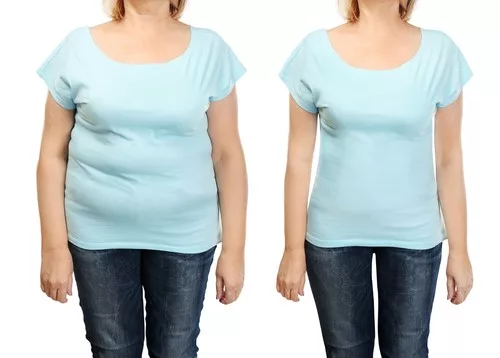by Mila McManus, MD
Weight loss never seems to be as simple as just changing diet or increasing exercise. Often, it is more of a multi-faceted approach that stimulates the body to burn fat. For example, we know that diet, exercise, proper hydration, stress reduction, and quality sleep work well together to stimulate weight loss. Also, within each of these lies many nuanced hacks to help you make even more progress. Check out these hacks and start practicing them for improved weight loss and overall health.
- Dress up your carbohydrates. Keep carbohydrates (vegetables, fruit, grains, sugar) in context with fat, protein, and fiber. Naked carbohydrates, eaten by themselves, get to the intestines very quickly. This usually causes hunger, carb cravings, weight gain, fatigue, elevated insulin levels, brain fog, inflammation, and ill health. Mix your carbs with fat, protein, and/or fiber. All three inhibit and slow down carb digestion.
- Drink some vinegar before a meal. More than a dozen research teams around the world have repeatedly discovered that vinegar has a favorable impact on fat loss. Adding vinegar right before meals for three months, subjects lost 2-4 pounds and reduced visceral fat, waist and hip measurements, triglyceride levels, and blood glucose levels. Blood glucose levels were reduced from 8 to 30 percent. Vinegar contains acetic acid and, when absorbed through the GI tract, it moves from the bloodstream to the muscles which then increases uptake of glucose from the blood. Before a meal, vinegar helps to release glucose more slowly from your food into the bloodstream, while also encouraging the muscles to take up glucose from the blood more quickly. One tablespoon of any kind of vinegar added to eight ounces of water is the recipe. But don’t use this hack expecting it to slow down your hamburger, fries, and milkshake! Pair it with a healthy, whole food meal.
- Pick dessert rather than a sweet snack. It is better to eat dessert than a sweet snack. For example, if you want to indulge in a brownie, it is better to consume it after eating a meal with fat, fiber, and protein, than to isolate it at 3pm or 9pm by itself away from a meal.
- Start with your rabbit food (raw or cooked vegetables) first. At mealtime, eat your veggies first, followed by protein and healthy fats. Then place higher carb foods, such as potato, grains (rice, corn, wheat, etc.), fruit, or dessert at the end of the meal. Fiber expands and creates a barrier while protein and fats are slower to digest. This lines up the fast carbohydrates at the end of the line and are stalled by everything before it.
- Eat, then get moving. Moving immediately after a meal uses up available blood sugar rather than storing it in fat. The more carbohydrates you can burn, the better!
- Stop eating at least 3 hours before bed. Sleeping with food in the stomach causes fat storage and interrupts sleep quality. During sleep, we detoxify, reset hormones, calm the adrenal stress response system, and heal. If you are digesting food instead, none of this occurs.
- Stop counting calories. Instead, eat quality. 100 calories in a Donut is NOT the same as 100 calories of nuts. Calories are not nearly as important as quality, real whole food! RUN from ultra-processed foods. If you count anything, count carbohydrate grams. Lower them until weight loss begins. Your carb gram number will be unique to you, and is best advised by a qualified healthcare professional.
- Go savory for breakfast. If you are going to start the day with breakfast, start with protein, fat, and fiber – limit grains and fruit, especially tropical fruits, such as banana, pineapple, or mango, as well as dried fruits like raisins, prunes, or apricots. Avoid putting two carbohydrates together (e.g., oatmeal with raisins or blueberries and brown sugar, jam and toast, fruit juice and a muffin).
- Limiting sugar is the hack, not using one kind over another. Sugar is sugar. At a molecular level, they all spike blood sugar. In other words, whatever it is called, and there are more than 60 kinds of sugar found in our foods, (e.g., table sugar, honey, coconut, date palm, maple syrup, corn syrup, brown sugar, glucose syrup, naming just a few), all of them will spike your blood sugar, which is what you want to avoid.
- Flee from fructose. It is more harmful than glucose or sucrose. Fructose is overwhelming to the liver, turns to fat, precipitates insulin resistance, and makes us gain more weight than will glucose. It also makes us hungrier rather than satiated. Agave syrup is 90% fructose and honey is 40%. The highest fructose-containing fresh fruits include grapes, bananas, jackfruit, and papaya, and all dried fruit and fruit juices. Sweet tea, coconut water, soft drinks, fast food hamburgers, and ketchup are other considerable sources of fructose.
- Savory snacks are ideal. Eating in between meals is best done with savory, salty, fatty foods such as nuts and nut butters, guacamole, hummus, olives, and bean chips, to name a few. When we eat fruit or any type of sugary food by itself without fat, fiber, and protein, we are setting ourselves up for fat storage, sugar spikes and dumps, and fatigue.
- Intermittent fast to turn on your fat burning mechanism. While intermittent fasting (IF) and an extremely low carbohydrate (ketogenic) diet are not a suggested daily lifestyle, they are an excellent strategy for breaking a weight gaining streak and resetting the body’s ability and willingness to burn fat. Chronic high carbohydrate consumption and snacking prevents the body from needing to burn fat and the body gets very lazy about doing so. Instead, your body demands more carbohydrates for fuel rather than accessing fat stores. Intermittent fasting (IF) with a more ketogenic diet reminds your body to access fat stores. One word of caution, intermittent fasting should not be done suddenly, and it might be wisest to ask your medical provider and our nutritionist if IF is a good option for you and how best to implement this strategy. Moreover, some people don’t do well cutting out carbs cold turkey. If you are going to attempt a keto diet, decrease carb intake gradually and be sure to supplement with minerals (e.g. salt, potassium, magnesium).
Best wishes and be Well!
References:
Inchausepe, Jessie. The Glucose Revolution. (London: Short Books, 2022).
https://www.myfooddata.com/articles/high-fructose-foods.php#printable


